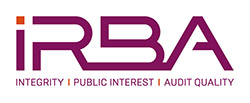SHAREHOLDERS ARE HAVING THEIR SAY ON AUDITOR APPOINTMENTS
|
27% of surveyed AGM resolutions record significant increase in opposing votes Johannesburg, Wednesday, September 6, 2017 - Since announcing that Mandatory Audit Firm Rotation would be a requirement from 2023, the Independent Regulatory Board for Auditors (IRBA) has been tracking the results of shareholder voting at annual general meetings with respect to the reappointment of auditors. A visible trend towards voting against the reappointment of auditors is developing, with 27% of the surveyed ordinary resolutions increasing the opposing votes by up to 40%. This appears to be the case, particularly for those companies where the tenure is excessively long. The IRBA issued a regulation in December 2015 requiring audit firms to disclose the length of tenure of an audit in the independent auditor’s report to shareholders. This was to ensure that shareholders were aware of the length of the relationship between the auditor and their client, which should have also been considered by the audit committee when the auditors were considered for reappointment. “What is clear is that the shareholders are beginning to make their voice heard at AGMs regarding the necessity for firm rotation to end excessively long relationships. Where audit committees may feel a 20-year, 50-year or longer relationship might not impair auditor independence, shareholders are saying otherwise,” says Bernard Agulhas, CEO of the IRBA. Say Agulhas: “Of the 102 auditor appointment resolutions tabled at annual general meetings since November 2016, 51 recorded an increase in opposition; of these 24 resulted in significant shareholder opposition to the auditor’s reappointment. The most significant opposition recorded an increase of up to 40% year on year in the votes against the reappointment of auditors. “The most recent annual general meetings to be subject to this increased shareholder opposition were Telkom and PPC Ltd, which reflected 23% and 14% increases in the no vote. While such an increase may seem insignificant in some instances, it indicates to us that even minority shareholders are finding their voice.” Of those 24 resolutions (see below) that recorded an increase in the vote against the reappointment of auditors, only three had previously recorded an opposing vote above 1% (but less than 10%); the remainder had seen shareholders almost unanimously adopt the recommendation of the audit committee at the preceding AGM. The reality is that even with some shareholders opposing the reappointment of auditors, the vote is not binding without a majority. This is not in the best interest of minority shareholders. “As a first step, we are satisfied that the rule to disclose tenure of audit has served the purpose of highlighting excessively long relationships between companies and their auditors. However, there is still more shareholder education to be done, as it is the shareholder – and not the management of the company - who is the auditor’s real client,” Agulhas concludes.
Ends More about the IRBA: The IRBA is a public protection statutory body established to protect the financial interests of the public by ensuring registered auditors and their firms deliver services of the highest quality. It upholds audit firm independence to ensure that audit quality is such that it enhances the accuracy and credibility of financial performance reporting. In this way, the IRBA has an important role to play in building the reputation of South Africa as an investment market for both local and global investors and driving economic growth for the country. As an internationally recognised regulator of the auditing profession and other assurance services relevant to the South African environment, it has been recognised by the World Economic Forum as the top independent audit regulator worldwide for seven consecutive years for the strength of its audit controls and standards. The IRBA also registers suitably qualified accountants as auditors, who must adhere to the highest ethics standards, and promotes the auditing profession through the effective regulation of assurance conducted in accordance with internationally recognised standards and processes.
|





